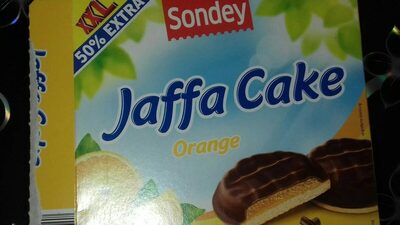
Barcode: 20816384
Jaffa Cake Orange
HALAL
📝 Reason: The product is considered Halal as it does not contain any Haram ingredients or E-codes. All ingredients are either plant-derived or Halal-certified, with the exception of eggs from non-Halal certified sources, which are marked as Doubtful. The absence of Haram E-codes and meat ingredients ensures the product’s Halal status.
📄 Certificates: None
Ingredients:
Details
Is Jaffa Cake Orange Halal?
If you’re a fan of sweets and are mindful of Halal compliance, you might be asking yourself whether Jaffa Cake Orange is Halal. The good news is that Jaffa Cake Orange has indeed been labeled as Halal.
Understanding Halal Status
The term Halal refers to what is permissible or lawful in Islamic law. For food products to maintain their Halal status, they must avoid certain Haram (forbidden) ingredients and adhere to Halal guidelines. In evaluating Jaffa Cake Orange, the primary focus is on the ingredients and their sources.
Ingredients Breakdown
Jaffa Cake Orange includes the following ingredients:
- Zucker (Sugar) – Generally considered Halal.
- Glukose Fruktose Sirup (Glucose-Fructose Syrup) – Derived from plants and is Halal.
- Orangensaft aus Orangensaftkonzentrat (Orange Juice from Concentrate) – Halal.
- Weizenmehl (Wheat Flour) – Halal.
- Kakaomasse (Cocoa Mass) – Halal.
- lüssiges Vollel (Liquid Whole Egg) – Eggs from non-Halal certified sources are marked as Doubtful.
- Palmfett (Palm Fat) – Plant-derived and Halal.
- Kakaobutter (Cocoa Butter) – Halal.
- Sorbit (Sorbitol, E420) – Halal.
- Welzenstärke (Wheat Starch) – Halal.
- Pektine (Pectin, E440) – Halal.
- Citronensäure (Citric Acid, E330) – Halal.
- Mono – und Diglyceride von Speisefettsäuren (Mono- and Diglycerides of Fatty Acids, E471) – Halal if derived from plant sources.
- Lecithine (Soja) (Soy Lecithin, E322) – Halal.
- Tapiokastärke (Tapioca Starch) – Halal.
- Ammoniumcarbonate (Ammonium Carbonate, E503) – Halal.
- Natriumcarbonate (Sodium Carbonate, E500) – Halal.
- Orangenschalenöl (Orange Peel Oil) – Halal.
- Natriumcitrate (Sodium Citrate, E331) – Halal.
- Speisesalz (Salt) – Halal.
- natürliches Vanille-Aroma (Natural Vanilla Flavor) – Halal.
E-Numbers and Their Status
Almost all E-numbers listed in the ingredients of Jaffa Cake Orange have been confirmed as Halal. Let’s discuss some noteworthy points:
- E420 (Sorbit): Sorbitol is commonly derived from plant sources, making it Halal.
- E440 (Pectin) and E330 (Citric Acid): These are derived from fruits and plants, thus complying with Halal criteria.
- E471 (Mono- and Diglycerides of Fatty Acids): Generally Halal when sourced from plants.
- E322 (Soy Lecithin): Derived from soybean, it’s considered Halal approved.
Conclusion on Halal Status
Considering the comprehensive analysis of the ingredients and their respective Halal statuses, Jaffa Cake Orange can undoubtedly be enjoyed by those adhering to Halal dietary needs. The primary concern noted is the use of whole liquid eggs from potentially non-Halal sources, categorized as Doubtful. However, the remaining ingredients are all compliant with Halal standards, mostly being plant-derived or Halal-certified.
Final Thoughts
In summary, for anyone questioning the Halal status of Jaffa Cake Orange, the product is favorable with the exception of the liquid eggs. It is wise to check with suppliers or manufacturers for any possible updates concerning Egg sourcing. As always, make informed choices based on your personal requirements and values.

